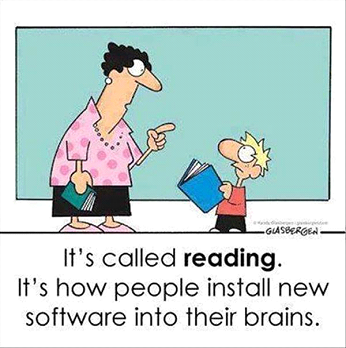July 27, 2015
Learning #8
What is learning? As I’ve been defining learning in all of these posts about learning, there are numerous ways to think about learning and about all of the facets of learning. Now before I read what Husserl, the founder of Phenomenology, said in defining learning, I would have said that it is knowledge. Learning is increasing one’s knowledge base in order to become more knowledgeable. And while learning does involve that, it is more than that. Here’s what Husserl wrote:
“Learning is not the accumulation of scraps of knowledge. It is growth, where every act of knowledge develops the learner, thus making him capable of constituting ever more and more complex objectivities—and the object growth in complexity parallels the subjective growth in capacity.”
This fits with the very heart of Self-Actualization Psychology where the Being-Values of knowledge, understanding, learning, meaning, meaningfulness, and wisdom replace, for us humans, what instincts do for animals. We do not have information-loaded instincts; we only have blind, deaf, and mute impulses that create a multitude of urges within our mind-body system. For any given impulse we have to ask, what do this mean? What is this urge? How do I fulfill it truly and accurately? This is the place where we have to learn. We have to gain knowledge so that we understand what the urges are, what satisfies them, how to effectively cope with them, how to maximize our biological urges and when we do—we experience an increase in mental, emotional, and physical vitality.
The bottom line is that because we do not come with innate knowledge regarding what they mean, we have to learn. If there’s any human “instinct,” it is the instinct to learn. And good news: When we learn, we unleash our potentials. That is, we grow. We grow as human beings; we develop our possibilities; we grow in maturity and wisdom. So again, what is learning? Learning involves knowledge yet it involves so much more.
Learning is our primary source for becoming all that we can become.
“So what?” you ask. Lots! You learn best and you accelerate your learning when you learn to grow. So if you are reading something and I approach and ask you the following, what would you say?
“Oh you’re reading! What are you reading? How will you change based on this reading? What will this reading and study do for you as a person? How will it enable you to be a better person? How much have you been growing while you’ve been reading right now? What will be some of the first things that you will do based on this study?”
Now if you frame learning as just intellectual data, and not personal, and not an aspect of actualizing your best potentials, then you might even think of learning either intellectual information which is either relevant or irrelevant, as exciting or boring, as an effort or just for entertainment, etc. Yet if you frame learning as primarily a mental exercise, you thereby diminish the richness of what learning could do for you. It won’t excite you and put you in a state of joyful anticipation and wonder about your own self-development.
Gregory Bateson created a model of the levels of learning, from Level 0 where there’s no learning, one knows and does the same thing over and over. Level 1 you expand what you know so that your learning becomes richer. Level 2 you learn how to learn by adding new learning skills and strategies to your learning (meta-learning). Level 3 you learn how your meta-learning works so that you can change the way you are learning and the assumptive frames you are working from.
He also called that model a model of the levels of change. That’s because when you learn, you change. That’s true on both the macro-level and on the microscopic level. This is easy to see at the macro-level because as you learn and know more, and know different, you talk and act differently. It is equally true at the microscopic level as neurons are activated differently in your brain, new neuro-pathways are created, assemblages of cells are stimulated in new ways, etc.
What then is learning? It is actually the heartbeat of personal change and growth and development. This means that learning can be one of the ways that you actualize your highest meanings (visions and values) and best performances. This explains why for self-actualizing people school is never out, learning is never completed. It explains why self-actualizing people are continuous learners and why the live on the edge of excitement when it comes to adult learning. They not only learn, they keep learning about their learning and that meta-learning enables them to get better, more skilled, more competent about their learning.
In Neuro-Semantics we see learning as a core competency for ongoing personal development, competency in business, relationships, wealth creation, health and well-being, leadership, and much more.
L. Michael Hall, Ph.D.

